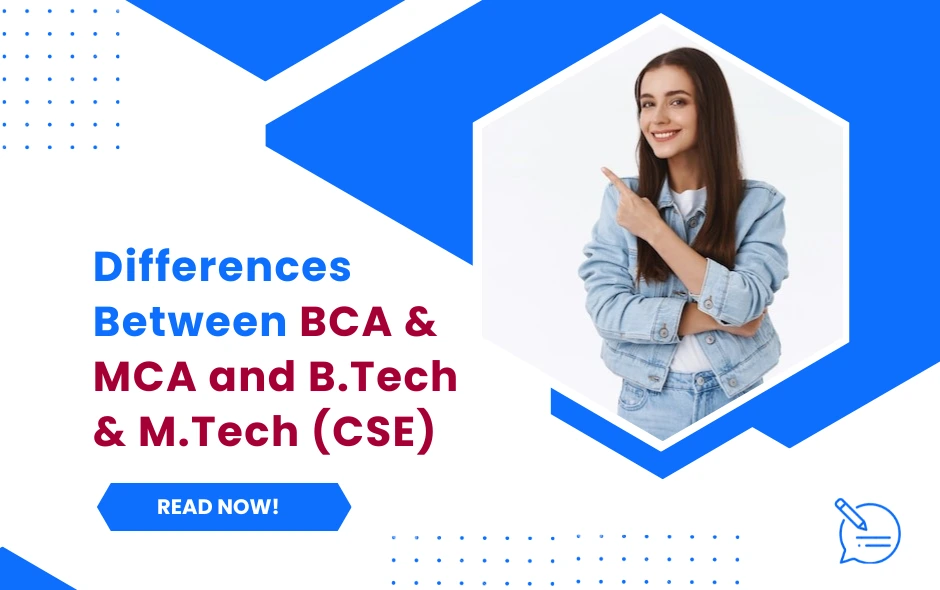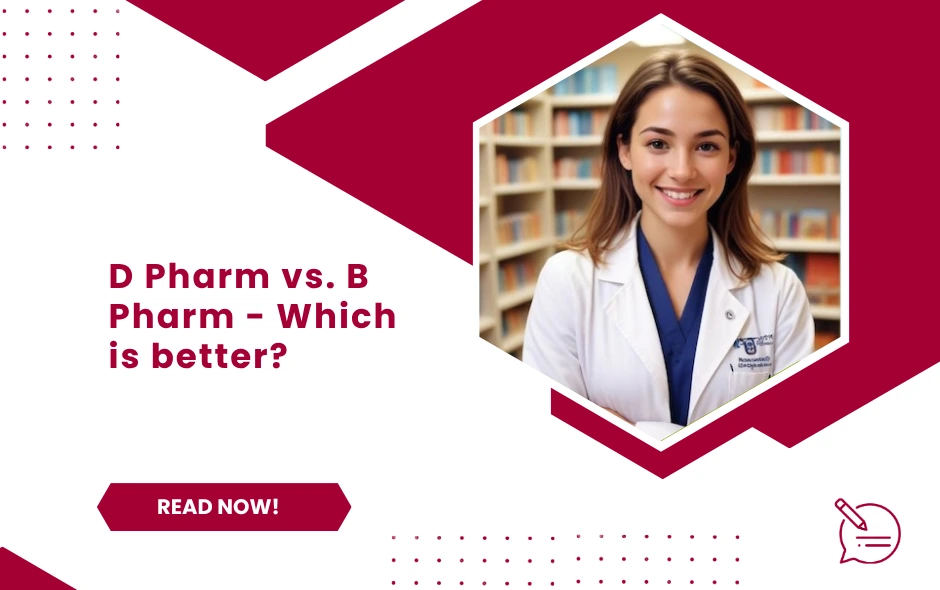Top 10 PCB Courses After 12th Without Neet
Aced your 12th boards in Physics, Chemistry, and Biology (PCB), but NEET isn't on your horizon? Don't fret! This blog unveils the top 10 PCB Courses After 12th Without NEET, opening doors to a fulfilling career path that aligns with your scientific interests. These courses offer diverse specialisations, from healthcare to research, ensuring something perfect for your aspirations. So, dive in and discover the exciting possibilities that await!
Top 10 PCB Courses After 12th Without Neet
| Name of the Course | Duration | Job Profile | Average Salary p.a. (in INR) |
|---|---|---|---|
| B.Sc. Nutrition & Dietetics | 3-4 years | Nutritionist, Dietician | 4-6 Lakhs |
| B.Sc. Medical Lab Science | 3-4 years | Medical Laboratory Technician, Phlebotomist | 3-5 Lakhs |
| B.Sc. Forensic Science | 3-4 years | Forensic Scientist, Crime Scene Investigator | 4-7 Lakhs |
| B.Optometry | 4 years | Optometrist | 5-7 Lakhs |
| B.Sc. Bio-Technology | 3-4 years | Biotechnologist, Research Scientist | 3-8 Lakhs |
| B.Sc. Medical Technology - Anesthesia & Operation Theatre | 3-4 years | Anesthesia Technician, Operation Theatre Assistant | 3-5 Lakhs |
| B.Sc. Radiology & Imaging Technology | 3-4 years | Radiology Technician, X-ray Technician | 3-5 Lakhs |
| B.Pharmacy | 4 years | Pharmacist | 4-6 Lakhs |
| B.Sc Food Technology | 3-4 years | Food Technologist, Quality Control Analyst | 3-5 Lakhs |
| B.Sc in Agricultural Science | 4 years | Agricultural Scientist, Research Associate | 3-5 Lakhs |
Why is the NEET Exam not required for specific medical courses?
There are a couple of reasons why the NEET exam isn't required for specific medical courses:
Focus and Specialization:
- NEET is designed to select students for highly competitive courses like MBBS (Bachelor of Medicine and Bachelor of Surgery) and BDS (Bachelor of Dental Surgery). These programs focus on training doctors who can practice medicine independently.
- Other medical courses, however, cater to specialised fields within the healthcare system. They often require a strong foundation in PCB (Physics, Chemistry, Biology) but don't necessarily lead to becoming a doctor. Examples include Optometry, which focuses on eye care, and Medical Lab Technology, which involves analysing samples in a lab setting.
Regulation and Demand:
- The government regulates the number of doctors needed based on population and infrastructure. NEET helps manage the high demand for MBBS seats.
- Other medical professions may have different demand levels or require different skill sets. Their admission process might be handled by individual universities or through separate entrance exams specific to that field.
In essence, NEET acts as a gatekeeper for a specific path within the medical field. At the same time, other PCB courses offer diverse career options within healthcare without the same level of competition and regulation.
Eligibility for PCB Courses After 12th Without Neet
The eligibility criteria for PCB Courses After 12th Without NEET can vary slightly depending on the specific course and university, but here's a general breakdown:
In essence, NEET acts as a gatekeeper for a specific path within the medical field. At the same time, other PCB courses offer diverse career options within healthcare without the same level of competition and regulation.
Eligibility for PCB Courses After 12th Without Neet
The eligibility criteria for PCB Courses After 12th Without NEET can vary slightly depending on the specific course and university, but here's a general breakdown:
- Minimum Marks: You'll typically need to have passed your 12th standard exams with a minimum percentage in PCB subjects (Physics, Chemistry, Biology). Depending on the course and institution, this can range from 50% to 70%.
- PCB Subjects: Most PCB courses require Physics, Chemistry, and Biology as your main subjects in 12th grade.
- Entrance Exams (Optional): While NEET isn't required, some universities might conduct entrance exams for admission into specific PCB courses. These exams might test your knowledge of PCB or related subjects.
Overview of PCB Courses After 12th Without Neet
B.Sc. Nutrition & Dietetics
B.Sc. Nutrition & Dietetics is the perfect gateway to a career in food and wellness. This program equips you with the scientific knowledge of food and its impact on human health. You'll learn to design personalised diets, promote healthy eating habits, and guide individuals across different age groups and with varying medical conditions. Here's a quick look at what to expect:
- Eligibility: Typically requires passing 12th standard exams with a minimum percentage in PCB (Physics, Chemistry, Biology) subjects (usually 50-70%).
- Duration: The program lasts 3-4 years, depending on the university.
- Fees: The fees vary significantly depending on the institution, ranging from tens of thousands to several lakhs annually.
B.Sc. Medical Lab Science trains you to be a vital part of the diagnostic team in hospitals and clinics. Through a combination of classroom learning and hands-on lab experience, you'll master medical laboratory techniques in areas like blood tests, microbiology, and tissue analysis.
- Eligibility: Pass 12th grade with a minimum percentage in Physics, Chemistry, and Biology (varies by university).
- Duration: Typically 3-4 years.
- Fees: Costs can vary depending on the institution. Check university websites or prospectuses for specific fee structures.
Ever dreamt of solving crimes like your favourite detectives? B.Sc. Forensic Science equips you to analyse evidence using scientific methods to aid criminal investigations. You'll delve into fingerprint analysis, trace evidence examination, and even DNA profiling. This exciting program typically takes 3-4 years to complete.
Eligibility: Pass 12th grade with a minimum percentage in Physics, Chemistry, and Biology (varies by university).
Duration: 3-4 years.
Fees: Costs can vary depending on the institution. Check university websites or prospectuses for specific fee structures.
B.Optometry is a perfect fit if you're passionate about eye health! This program equips you to become an optometrist, a primary eye care professional who performs eye exams, diagnoses vision problems, prescribes corrective lenses, and manages certain eye diseases.
Eligibility: Pass 12th grade with a minimum percentage in Physics, Chemistry, and Biology (varies by university).
Duration: Typically, four years, including an internship component.
Fees: Costs can vary depending on the institution. Check university websites or prospectuses for specific fee structures.
Dive into the fascinating world of B.Sc. Biotechnology! This program merges biology with technology, equipping you to manipulate living organisms at the cellular and molecular levels. You'll explore areas like genetic engineering, vaccine development, and biofuels, preparing you for a dynamic career in research, medicine, or the food industry.
Eligibility: Typically requires 50-60% marks in 12th grade with Physics, Chemistry, and Biology (PCB) subjects.
Duration: Usually 3-4 years.
Fees: Costs can vary significantly depending on the university. Check their websites or prospectuses for specific fee structures.
B.Sc. Medical Technology - Anesthesia & Operation Theatre
B.Sc. Medical Technology - Anesthesia & Operation Theatre prepares you to be vital to the surgical team. You'll gain the knowledge and skills to assist anesthesiologists in administering anaesthesia and ensure a sterile and efficient operating theatre environment. This program typically takes 3-4 years to complete.
Eligibility: Pass 12th grade with a minimum percentage in Physics, Chemistry, and Biology (varies by university).
Duration: 3-4 years.
Fees: Costs can vary depending on the institution. Check university websites or prospectuses for specific fee structures.
B.Sc. Radiology & Imaging Technology
B.Sc. Radiology & Imaging Technology Theatre dives deep into the world of medical imaging. You'll learn to operate sophisticated X-ray, CT scan, MRI, and other imaging equipment to produce high-quality diagnostic images doctors use for disease detection and treatment planning. This program equips you with a hands-on role in radiology departments, assisting medical professionals during procedures and ensuring patient safety.
Eligibility: Pass 12th grade with a minimum percentage in Physics, Chemistry, and Biology (varies by university).
Duration: Typically 3-4 years.
Fees: Costs can vary depending on the institution. Check university websites or prospectuses for specific fee structures.
Pharmacy is your gateway to the fascinating world of pharmaceuticals! This program equips you with the knowledge to develop, manufacture, and dispense medications. You'll delve into drug chemistry, pharmacology, and pharmaceutics, gaining expertise in drug formulation, quality control, and dispensing practices.
Eligibility: Pass 12th grade Science stream with Physics, Chemistry, and Biology (Mathematics in some cases). The minimum marks required vary by university.
Duration: Typically four years.
Fees: Costs can vary depending on the institution. Check university websites or prospectuses for specific fee structures.
B.Sc Food Technology
B.Sc. Food Technology is your chance to revolutionise the world of food! This program explores the science behind food processing, preservation, and product development. You'll delve into food chemistry, microbiology, and food engineering, learning to create innovative food products, ensure food safety, and extend shelf life. B.Sc. Food Technology typically takes 3-4 years to complete. Eligibility usually requires passing 12th grade with a minimum percentage in Physics, Chemistry, and Biology. Be sure to check with universities for specific admission requirements and fee structures, which can vary depending on the institution.
Eligibility: Pass 12th grade Science stream with Physics, Chemistry, and Biology (minimum percentage varies by university).
Duration: Typically 3-4 years.
Fees: Costs can vary depending on the institution. Check university websites or prospectuses for specific fee structures.
B.Sc in Agricultural Science
B.Sc. in Agricultural Science is your chance to revolutionise the food industry! This program equips you with the knowledge and skills to address global food production and sustainability challenges. You'll explore soil science, plant breeding, crop management, and agricultural economics, preparing you for farming, research, and agricultural development careers.
Eligibility: Pass 12th grade with a minimum percentage in Science subjects (often PCB - Physics, Chemistry, Biology).
Duration: Typically four years.
Fees: Costs can vary depending on the institution. Check university websites or prospectuses for specific fee structures.
The Importance of Pursuing PCB Courses After 12th Without Neet
For students with a passion for science and healthcare but an alternative path to NEET, PCB courses after 12th offer a treasure trove of opportunities. These programs delve into exciting specialities like nutrition, forensics, or biotechnology, equipping you with valuable skills for rewarding careers in research, diagnostics, or food science, all without the pressure of a competitive medical entrance exam.
Advantages of Pursuing PCB Courses After 12th Without Neet
Choosing PCB courses after 12th opens a world of possibilities beyond the pressure of NEET. Here's what makes them so advantageous:
- Diverse Career Options: Explore various exciting fields, such as Nutrition and dietetics, Forensic Science, or Biotechnology. These specialisations offer fulfilling careers in research, diagnostics, food science, and more.
- No NEET Exam: Skip the stress of a competitive entrance exam and focus on excelling in a program that aligns with your interests.
- Practical Applications: Many PCB courses emphasise hands-on learning and lab work, giving you valuable skills directly applicable to the workplace.
- High Demand: The healthcare and science sectors constantly evolve, creating a growing demand for skilled professionals in various PCB-related fields.
- Flexible Entry Requirements: Compared to NEET, some PCB courses might have more flexible entry criteria, making them accessible to a broader range of students.
These advantages allow you to leverage your PCB knowledge to align with your passions and career goals, paving the way for a successful and fulfilling future.
In conclusion, the exciting world of PCB Courses After 12th Without NEET offers many possibilities for students passionate about science and healthcare. From the intricacies of nutrition to the cutting-edge world of biotechnology, these programs cater to diverse interests and career aspirations.
Remember, choosing the right course hinges on your unique strengths and goals. Research different options, explore career paths, and discover the program that ignites your scientific spirit. With dedication and the knowledge gained from these exceptional PCB courses, you're well on your way to a fulfilling and successful career in the ever-evolving world of science and healthcare.
Considering CGC Jhanjeri for your PCB studies? This esteemed institution is renowned for its commitment to quality education and practical training in paramedical sciences. Explore their offerings in B.Sc. Medical Laboratory Sciences, B.Sc. Operation Theatre Technology, B.Sc. Optometry and more leverage their expertise to launch your scientific journey.
Whether you choose CGC Jhanjeri or another institute, remember that PCB Courses After 12th without NEET open doors to a world of opportunity. Dive in, explore, and embark on your exciting scientific adventure!
Frequently Asked Questions
Q. What are the benefits of pursuing PCB courses after 12th without NEET?
Ans. There are several benefits, including a wide range of career options, no pressure of a competitive entrance exam, emphasis on practical skills, high demand in the job market, and potentially more flexible entry requirements compared to NEET.
Q. What are some career options available after completing a PCB course?
Ans. The options are diverse! You could become a nutritionist, medical lab technician, forensic scientist, optometrist, biotechnologist, pharmacist, food technologist, agricultural scientist, and more.
Q. Are there any entrance exams besides NEET for these courses?
Ans. Some universities might conduct their entrance exams for specific PCB courses. It's always best to check with the university you're interested in for admission requirements.
Q. What are the typical eligibility criteria for PCB courses?
Ans. You'll usually need to have passed 12th grade with a minimum percentage in Physics, Chemistry, and Biology (PCB). The minimum percentage can vary depending on the course and university.
Q. Do I need to have Mathematics in 12th for these courses?
Ans. While most courses require PCB, a few, especially those with a strong focus on biotechnology or research, might prefer students who had Mathematics in 12th grade.
Q. What are the career prospects of a B.Sc. in Nutrition & Dietetics?
Ans. Nutritionists and dietitians are crucial in promoting healthy eating habits and managing weight and chronic diseases. They can work in hospitals, clinics, sports facilities or even start their practice.
Q. What does a B.Sc. Medical Lab Science graduates typically do?
Ans. Medical lab technicians work in laboratories analysing blood samples, tissues, and other body fluids to diagnose diseases and monitor treatment progress.
Q. Is there a demand for Forensic Science graduates?
Ans. Yes! Forensic science plays a vital role in the criminal justice system. Graduates can find employment in crime labs, law enforcement agencies, or research institutions.


















